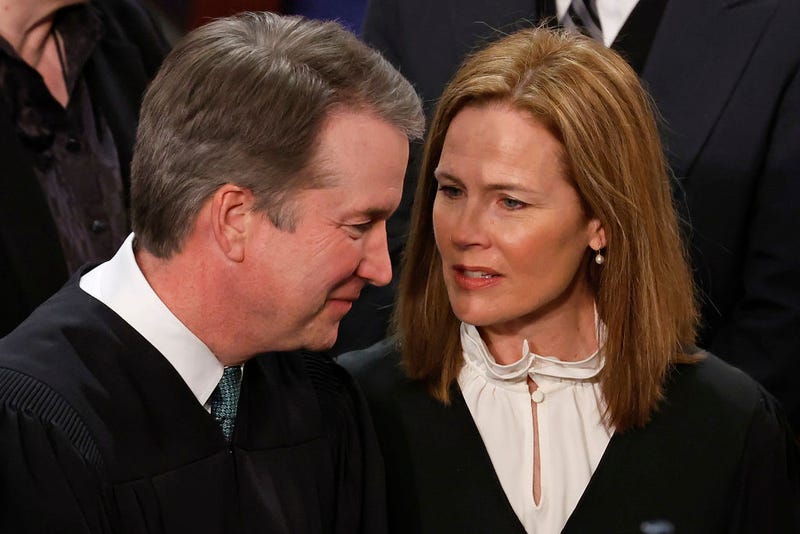
Supreme Court Justice Amy Coney Barrett says it would be a good idea for the nation’s highest court to adopt a formal code of conduct.
Barrett spoke at a University of Minnesota Law School event Monday night but declined to estimate how long it might take the Supreme Court to arrive on a consensus about what its own ethics code should be. She spoke just two weeks after the high court opened its current term.
“I think it would be a good idea for us to do it, particularly so that we can communicate to the public exactly what it is that we’re doing — and in a clearer way than perhaps we have been able to do so far,” Barrett said. “I will say this, there is no lack of consensus among the justices — there is unanimity among all nine justices — that we should and do hold ourselves to the highest standards, highest ethical standards possible.”
The justices have come under intense pressure over ethics after it came to light that several justices failed to report lavish trips and gifts.
Barrett went further than she did in August when she told a judicial conference in Wisconsin that she welcomed public scrutiny of the high court, but stopped short of commenting on whether she thinks the court should change how it operates in the face of growing ethics concerns. She did not offer any opinion nor did she speak directly about calls for the justices to adopt an official code of conduct.
Barret was greeted by several student protestors unhappy with her rulings on abortion and affirmative action.
In her remarks Monday, Barrett said what she has in mind for a code is “how best to express what it is that we are already doing.” She said the justices already abide by statutes that apply to all judges by filing financial disclosure forms. She said she still personally follows the formal canons of conduct that applied to her when she was an appeals court judge — which don’t apply to the Supreme Court — and that her fellow justices do the same.
But when asked by her host, former Law School Dean Robert Stein, how long it might take the Supreme Court to reach consensus about what its own ethics code should be, Barrett demurred.
“I think that’s something that I can’t really speak for the court about or make any sort of guess,” she said.
Barrett spoke as part of a lecture series named for Stein that has also brought to the university Justices Elena Kagan, Sonia Sotomayor, Antonin Scalia, Ruth Bader Ginsburg and Chief Justice John Roberts. But security in and around the auditorium was notably tighter than for the other justices, following calls by activist groups to protest against Barrett’s appearance.
The Supreme Court has been tipped further to the right by the three justices named by former President Donald Trump, including Barrett. Public trust in the institution fell to a 50-year low following a series of polarizing rulings, including the overturning of Roe v. Wade and federal abortion protections last year.
The Associated Press reported this summer that it obtained thousands of pages of documents showing how justices spanning the court’s ideological divide have lent the prestige of their positions to partisan activity — by headlining speaking events with prominent politicians — or to advance their own personal interests, such as boosting book sales, through college visits. And reporting from ProPublica earlier this year revealed that Thomas participated in lavish vacations and a real estate deal with a top Republican donor.
But justices have treaded gingerly in their public comments. Kagan declared her support for an ethics code for the Supreme Court at a conference in Oregon in August. But she said there was no consensus among the justices on how to proceed.
Alito said in an interview with the Wall Street Journal in July, after Democrats pushed Supreme Court ethics legislation through a Senate committee, that Congress lacks the constitutional authority to impose a code of ethics on the high court. And Justice Brett Kavanaugh largely avoided discussing ethics during an appearance at a judicial conference in Minnesota in July.
The Associated Press contributed to this story.
